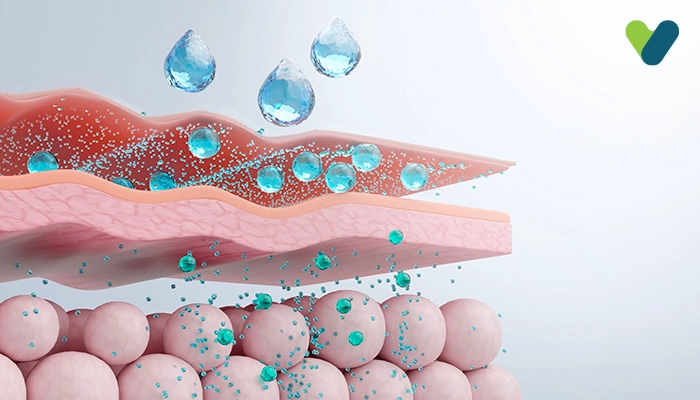Hyaluronic acid is also known by the name hyaluronan. What is hyaluronic acid? It is a clear element produced naturally in our bodies. The biggest amounts of hyaluronic acid are contained in our skin, eyes and connective tissues. You will be surprised to know that it plays a crucial role in water retention. This ensures better moisture and lubrication for body tissues in turn. There are many hyaluronic acid uses as well; several people consume this in the supplementary form while some also use serums, injections and drops.
What does hyaluronic acid contain?
Before moving onto the hyaluronic acid benefits, here is a list of what it actually contains:- GlcUA (D-Glucuronic Acid).
- GlcNAc (N-acetylglucosamine).
- β-1, 3 & β-1, 4 glycosidic bonds


